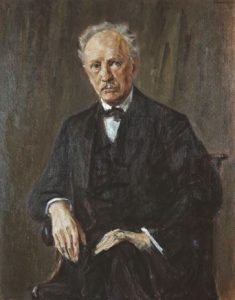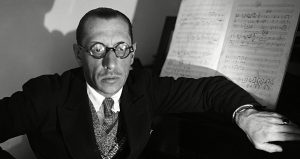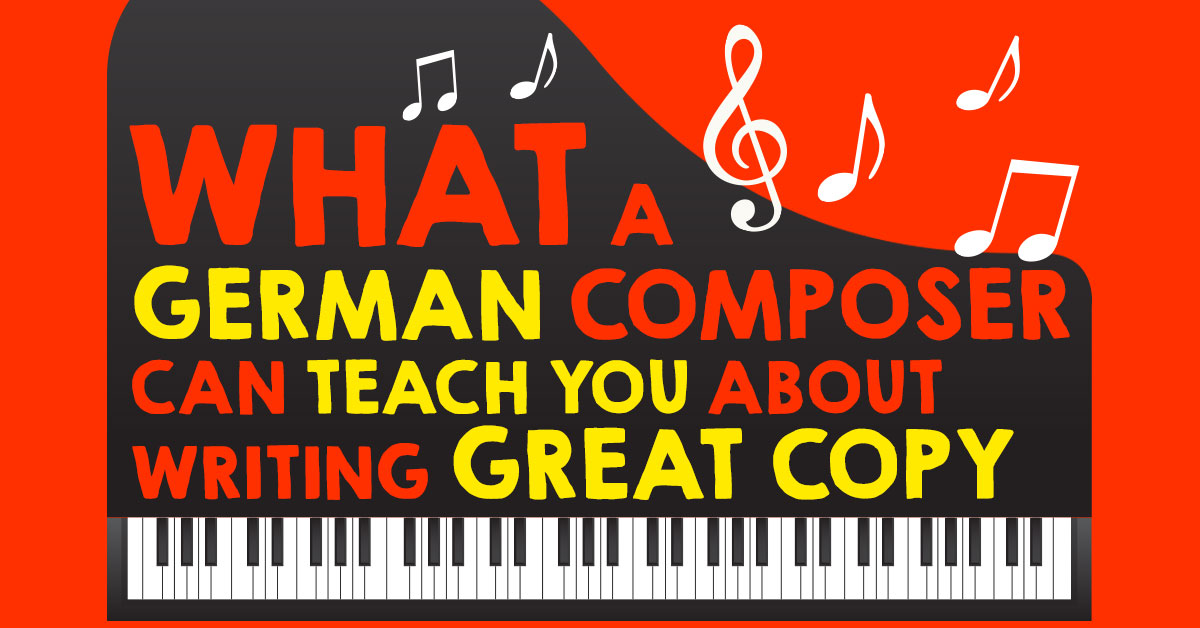At the turn of the 20th century, Richard Strauss was considered to be the preeminent composer in the world.
A German, Strauss began gathering attention for his compositions when he was just six years old…
And, over the next 79 years…
 His fame only continued to grow.
His fame only continued to grow.
Strauss composed dozens of tone poems, operas, and symphonies…
Conducted across Europe and the United States…
And brushed arms with the largest political figures in history…
From Kaiser Wilhelm II before the first World War (not a fan)…
To Hitler prior to WWII (a fan until Strauss wouldn’t renounce his support of the Jews).
 What Strauss is probably the most famous for are his “Tone Poems”…
What Strauss is probably the most famous for are his “Tone Poems”…
Which are pieces of orchestral music that mimic the content of a poem, story, novel, painting or other musical source.
It’s often said that in his Tone Poems,
Strauss took orchestral techniques to a new level of complexity…
And that he pushed both composition, and musical instruments🎹, to heights that others had thought impossible to reach.
—
As an artist and a creative…
There’s a lot about Richard Strauss that’s fascinating to me…
But, the real reason I felt the need to write about him this morning…
Is because of a piece of advice he gave to another young composer…
Igor Stravinsky.
 Strauss had just attended a performance of Stravinsky’s first major ballet, The Firebird…
Strauss had just attended a performance of Stravinsky’s first major ballet, The Firebird…
Which was enjoying much critical success and launching Stravinsky to stardom.
After the show…
Strauss was taken behind the curtain to meet the young, up-and-coming composer…
Which is in itself a powerful moment…
Because it’s kind of like the Beatles and Bob Dylan meeting for the first time…
Or Michelangelo and Leonardo DaVinci being introduced to one another at a gallery.
 It’s this colossal, cultural collision…
It’s this colossal, cultural collision…
A very special moment in history.
—
So, there Strauss and Stravinsky are…
Standing face-to-face for the first time…
And after a few moments of small talk and compliments…
Strauss looked Stravinsky straight in the eyes…
And this is the piece of advice he gives him:
“You make a mistake in beginning your piece pianissimo; the public will not listen. You should astonish them by a sudden crash at the start. After that they will follow you and you can do what you like.”
 Now, in case you’re wondering, pianissimo is a musical term to describe piano that is played very softly…
Now, in case you’re wondering, pianissimo is a musical term to describe piano that is played very softly…
So Strauss’s point was that, rather than beginning with a whisper…
Stravinsky should start with a bang.
And, here’s the thing…
This same advice can be PERFECTLY applied to direct response copywriting as well.
Because when it comes to the intro of your sales pages…
Or the headline of your Ad Copy…
Or the first lines of your email creative…
The most important thing you can do…
 Is to JOLT the prospect awake…
Is to JOLT the prospect awake…
By layering in so much curiosity, contrarianism, and emotion…
That they have no choice but to give you their full attention and keep reading or watching.
But one huge mistake that I see a TON of copywriters making…
Even really good ones…
Is that they don’t put enough thought or attention into their openings.
Instead, they engage in throat-clearing…
Or they begin with statistics…
Or they start things off with a long, boring story that doesn’t captivate their prospects at all…
And, inevitably their marketing message falls flat as a result.
 You’ve only got a few seconds to win your prospect’s attention…
You’ve only got a few seconds to win your prospect’s attention…
Which is why it’s so vital to “astonish them with a crash💥”…
Because, as Strauss so astutely observed…
“After that they will follow you, and you can do what you like.”
—
– SPG
P.S. This blog post is an illustration of why I love reading about so many different subjects and topics.
I originally heard about this meeting between Strauss and Stravinsky in a book I’m reading about WWI…
A book that obviously has nothing to do with copywriting, business, or marketing…
And yet, the moment I saw that quote from Strauss…
I knew I’d be sharing it in my blog post to you.
For me, personally…
I read business books every now and then…
But I’d say 90% of the stuff I read has nothing to do with business (at least on the surface).
Instead it's mostly history, biographies, autobiographies, fiction…
Along with non-fiction works about ideas from people like Nassim Taleb, Malcolm Gladwell, and Yuval Noah Harari.
I believe that this diversity of topics is one of the key reasons I’m so effective at thinking outside the box and generating unique ideas…
So, I figured I'd share this with you as well.
P.P.S. This post originally came from an email I sent to my private list. If you want to see more stuff like this from me, you can apply to join my list using this link.

0 Comments